Ginger And Its Benefits
The myriad benefits of ginger from its anti-inflammatory the science behind ginger's bioactive compounds your lifestyle for a natural boost to health

Ginger is a plant native to Southeast Asia that is commonly used as a spice in cooking and as a traditional medicine. It is a perennial plant that grows underground and has thin, branching roots, or rhizomes, that are used as the spice.
Ginger, scientifically known as Zingiber officinale, is not just a popular spice that adds flavor to culinary dishes; it's a powerhouse of health benefits with a rich history of medicinal use. From easing digestive discomfort to providing anti-inflammatory effects, ginger has been celebrated for its therapeutic properties across cultures. Let's delve into the various benefits that ginger offers:
Digestive Aid
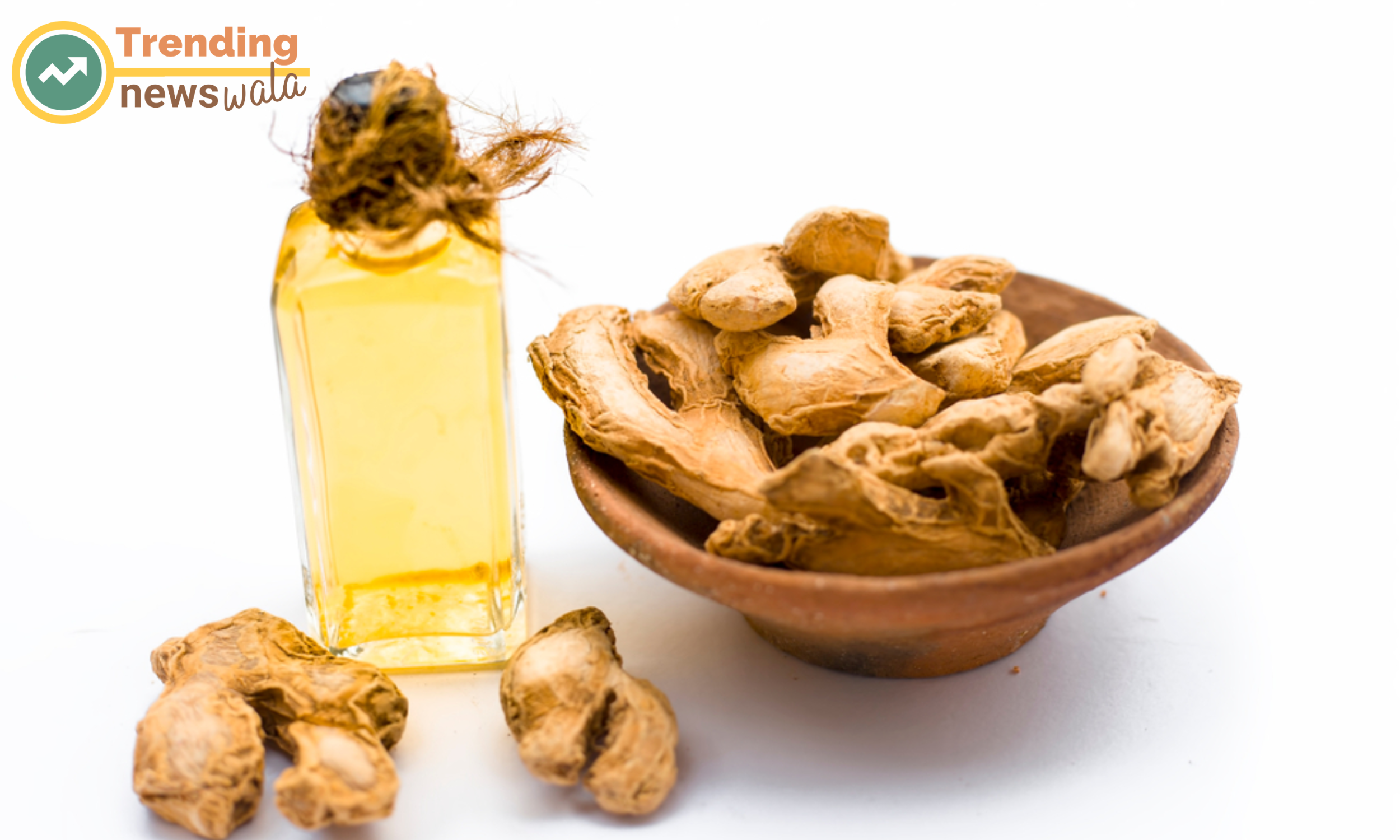
Ginger (Zingiber officinale) is a flowering plant whose rhizome, commonly known as ginger root, is widely used as a spice and for its medicinal properties. Here are some details about ginger and its potential health benefits:
Anti-Inflammatory Properties:
- Ginger contains bioactive compounds like gingerol, which have potent anti-inflammatory and antioxidant effects.
- These properties may help reduce inflammation in the body, potentially benefiting conditions like osteoarthritis and rheumatoid arthritis.
Nausea and Digestive Aid:
- Ginger has a long history of use as a remedy for nausea and vomiting, particularly associated with motion sickness, morning sickness during pregnancy, and chemotherapy-induced nausea.
- It may also help accelerate gastric emptying and alleviate indigestion.
Anti-Microbial Effects:
- Ginger has demonstrated antimicrobial properties, which may help inhibit the growth of certain bacteria and viruses.
- It may contribute to supporting the immune system's defenses.
Pain Relief:
- Due to its anti-inflammatory effects, ginger may offer pain relief for conditions such as menstrual pain and muscle soreness.
- Some studies suggest that it may be as effective as non-steroidal anti-inflammatory drugs (NSAIDs) in managing certain types of pain.
Blood Sugar Regulation:
- There is some evidence to suggest that ginger may help improve insulin sensitivity and regulate blood sugar levels.
- This potential benefit could be valuable for individuals with diabetes or those at risk of developing the condition.
Heart Health:
- Ginger may have cardiovascular benefits, including the ability to lower blood pressure and reduce cholesterol levels.
- Its anti-inflammatory and antioxidant properties may contribute to overall heart health.
Weight Management:
- Some studies suggest that ginger may help with weight management by increasing thermogenesis (calorie burning) and reducing feelings of hunger.
Cancer Prevention:
- While more research is needed, some studies have explored the potential anti-cancer properties of ginger.
- Gingerol, the bioactive compound in ginger, has been studied for its potential to inhibit the growth of cancer cells.
Respiratory Health:
- Ginger has traditionally been used to relieve respiratory conditions such as coughs and sore throats.
- It may have anti-inflammatory effects that could be beneficial for respiratory health.
It's essential to note that while ginger offers potential health benefits, it should be consumed in moderation. Some individuals may experience side effects such as heartburn or digestive discomfort. Pregnant individuals and those on certain medications should consult with a healthcare professional before adding ginger supplements to their routine. Incorporating fresh or dried ginger into recipes or enjoying ginger tea are common ways to include this spice in your diet.
Ginger has long been valued for its digestive properties. It helps stimulate saliva and suppress gastric contractions as food and fluids move through the GI tract. Whether in the form of ginger tea or as a spice in meals, it can alleviate nausea, indigestion, and bloating.
Anti-Inflammatory Properties
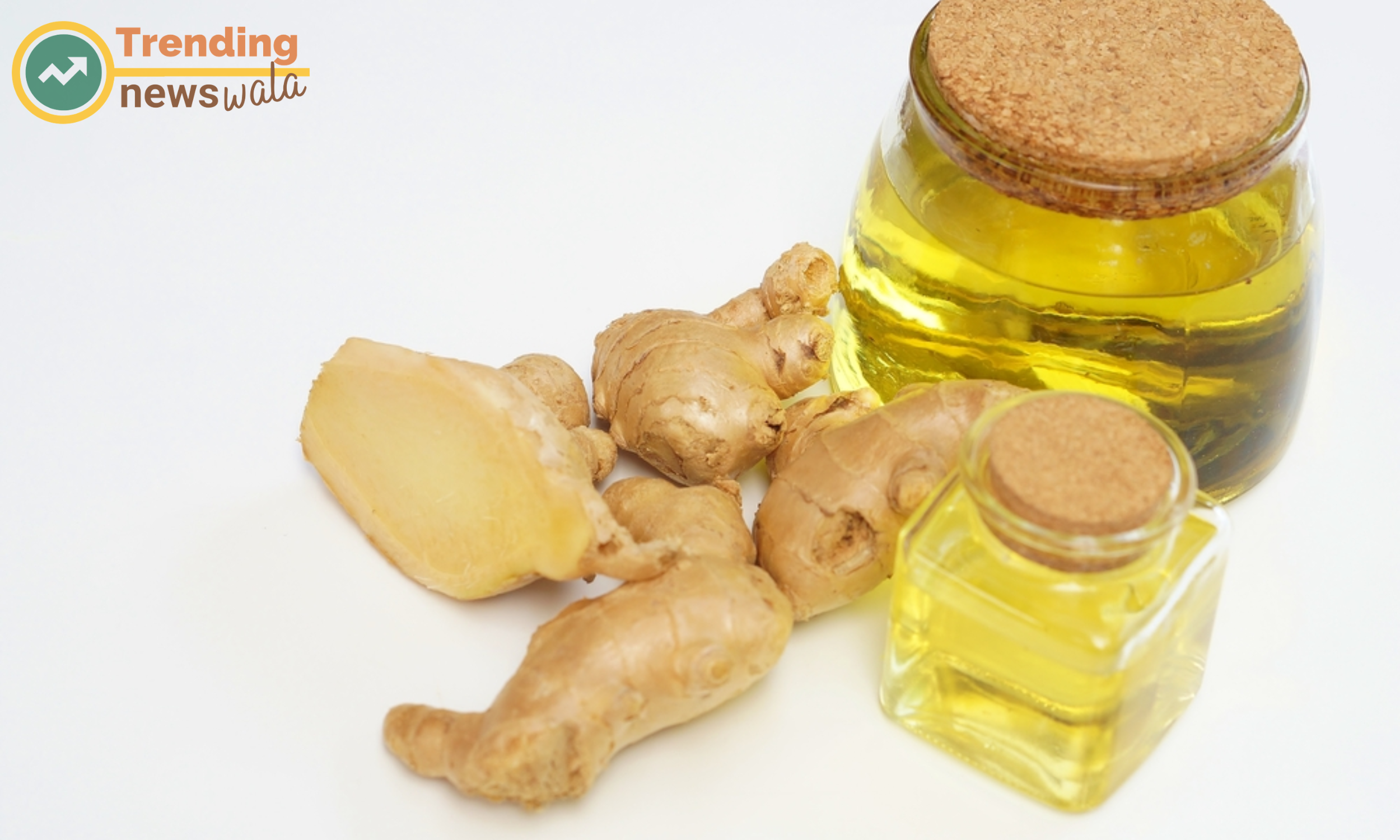
The anti-inflammatory properties of certain substances, including ginger, refer to their ability to reduce inflammation in the body. Inflammation is a natural and essential part of the immune response to injury or infection. However, chronic inflammation can contribute to various health conditions, including chronic diseases. Here are more details on the anti-inflammatory properties of ginger:
Bioactive Compounds:
- Ginger contains bioactive compounds, with gingerol being the primary active ingredient responsible for its anti-inflammatory effects.
- Other related compounds include shogaols and paradols, which contribute to ginger's medicinal properties.
Inhibition of Pro-Inflammatory Pathways:
- Gingerols have been shown to inhibit the production of pro-inflammatory cytokines and signaling pathways.
- By modulating these pathways, ginger may help reduce the intensity and duration of inflammation.
Reduction of Oxidative Stress:
- Chronic inflammation is often associated with oxidative stress, where free radicals damage cells and contribute to inflammation.
- Ginger's antioxidant properties help neutralize free radicals, reducing oxidative stress and supporting an anti-inflammatory environment.
Effects on Inflammatory Diseases:
- Research suggests that ginger may be beneficial in managing inflammatory conditions such as osteoarthritis and rheumatoid arthritis.
- Some studies indicate that ginger may alleviate pain and improve joint function in individuals with osteoarthritis.
Gastrointestinal Anti-Inflammatory Effects:
- Ginger has been studied for its potential anti-inflammatory effects in the gastrointestinal tract.
- It may help reduce inflammation associated with conditions like inflammatory bowel disease (IBD) and colitis.
Cardiometabolic Health:
- Chronic inflammation plays a role in the development of cardiovascular diseases, diabetes, and metabolic syndrome.
- Ginger's anti-inflammatory and antioxidant properties may contribute to cardiovascular health and help regulate blood sugar levels.
Potential Cancer Prevention:
- Some research has explored the potential anti-cancer effects of ginger, suggesting that its anti-inflammatory properties may inhibit the growth of cancer cells.
Respiratory Health:
- Ginger may have anti-inflammatory effects on the respiratory system, making it a traditional remedy for conditions such as asthma, bronchitis, and coughs.
Pain Relief:
- In addition to reducing inflammation, ginger's analgesic (pain-relieving) properties may contribute to its ability to alleviate pain, making it beneficial for conditions associated with inflammation, such as arthritis.
It's important to note that while ginger shows promise as an anti-inflammatory agent, more research is needed to fully understand its mechanisms and optimal usage for different conditions. It is advisable to consult with a healthcare professional before incorporating ginger or ginger supplements into your routine, especially if you have existing health conditions or are taking medications.
Ginger contains bioactive compounds like gingerol, which have potent anti-inflammatory and antioxidant effects. Regular consumption may help reduce inflammation, providing relief to individuals suffering from conditions like osteoarthritis and rheumatoid arthritis.
Nausea Relief
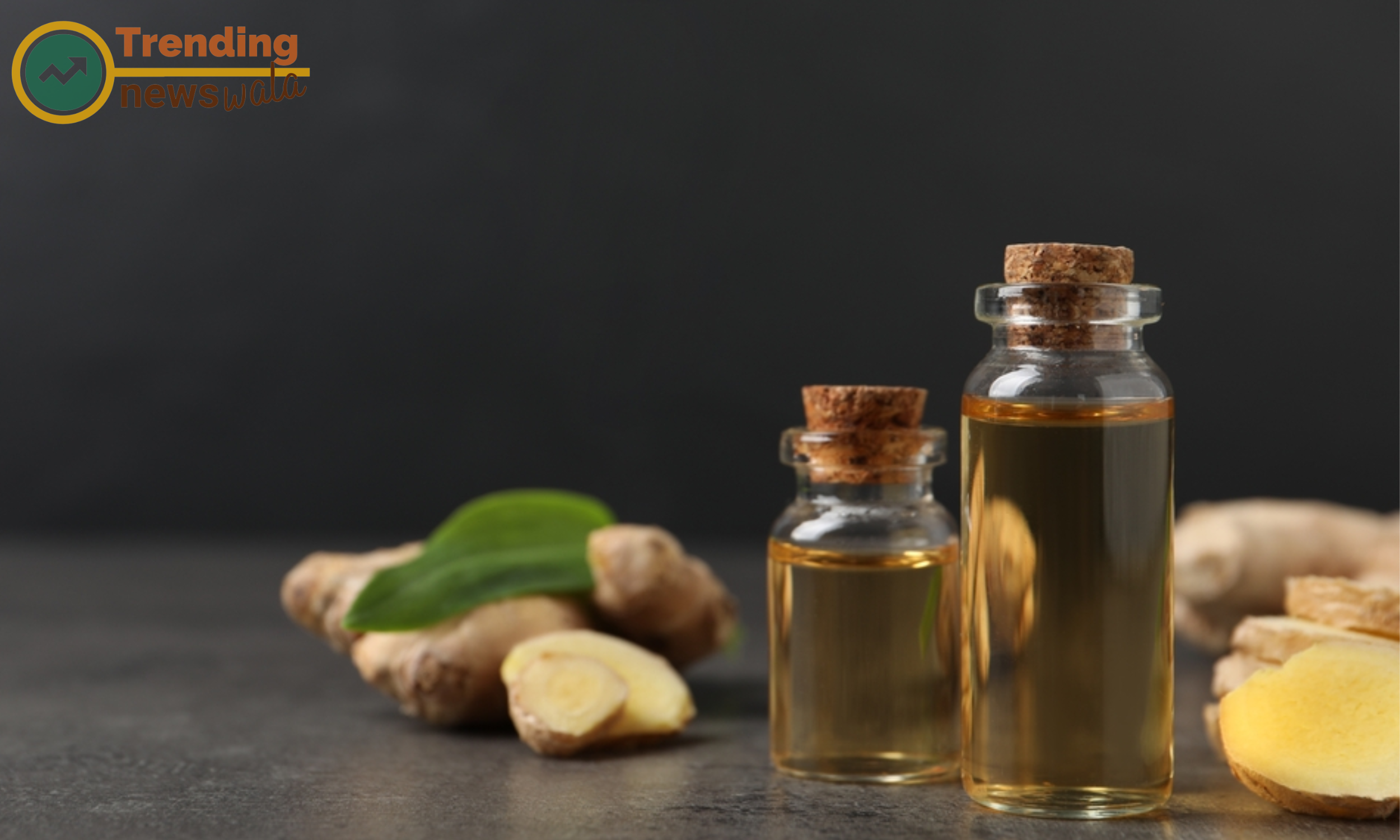
Ginger has a long history of use as a natural remedy for relieving nausea and vomiting. Here are more details on how ginger provides nausea relief:
Motion Sickness:
- Ginger is well-known for its effectiveness in alleviating motion sickness, whether experienced during car rides, boat trips, or flights.
- Studies suggest that ginger may help reduce symptoms such as dizziness, nausea, and cold sweats associated with motion sickness.
Morning Sickness:
- Pregnant individuals experiencing morning sickness often find relief from ginger.
- Research indicates that ginger supplements or ginger tea may be a safe and effective option for managing nausea and vomiting during pregnancy.
Chemotherapy-Induced Nausea:
- Cancer patients undergoing chemotherapy often experience nausea and vomiting as side effects.
- Some studies suggest that ginger may complement antiemetic medications and help reduce chemotherapy-induced nausea.
Postoperative Nausea:
- Ginger has been investigated for its potential to reduce nausea and vomiting after surgery.
- It may be considered as a complementary approach to standard antiemetic medications.
Gastrointestinal Relief:
- Ginger's soothing effects on the gastrointestinal tract may contribute to its ability to relieve nausea.
- It may help relax the muscles of the stomach and intestines, reducing feelings of queasiness.
Mechanism of Action:
- The exact mechanisms through which ginger alleviates nausea are not fully understood, but it is believed to involve interactions with neurotransmitters and receptors in the digestive system.
- Ginger may act on serotonin receptors and inhibit certain signals that trigger nausea.
Forms of Ginger for Nausea:
- Ginger can be consumed in various forms for nausea relief, including fresh ginger, ginger tea, ginger capsules, or ginger candies.
- Some people prefer adding grated ginger to hot water to make a tea, while others may find relief from ginger-containing snacks or supplements.
Dosage and Timing:
- The appropriate dosage of ginger for nausea relief can vary depending on the form used (fresh, tea, supplement) and individual tolerance.
- It's generally advisable to start with a lower dose and gradually increase if needed.
- Consuming ginger before the onset of nausea or motion sickness may be more effective.
Safety Considerations:
- While ginger is generally considered safe, pregnant individuals should consult with their healthcare provider before using ginger supplements.
- Excessive ginger consumption may lead to side effects such as heartburn or digestive discomfort in some individuals.
It's important to note that while ginger can be a helpful remedy for mild to moderate nausea, severe or persistent nausea should be evaluated by a healthcare professional. They can help identify the underlying cause and provide appropriate guidance on treatment. Individuals with certain medical conditions or those taking medications should consult with their healthcare provider before using ginger for nausea relief.
Known for its antiemetic properties, ginger is often recommended for alleviating nausea and vomiting. It can be particularly beneficial for motion sickness, morning sickness during pregnancy, and nausea induced by chemotherapy.
Immune System Boost
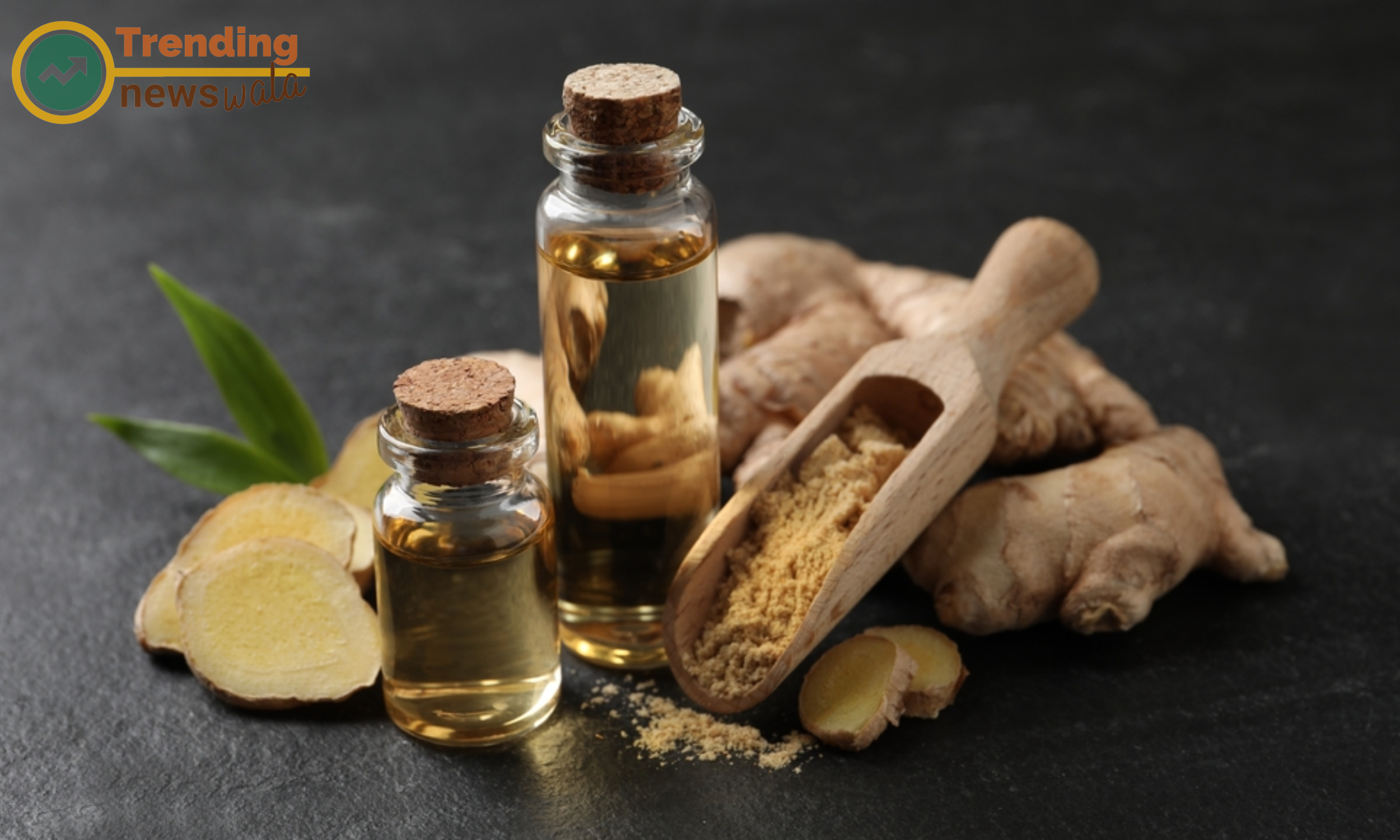
The immune system is a complex network of cells, tissues, and organs that work together to defend the body against harmful invaders, such as viruses, bacteria, and other pathogens. While the term "immune system boost" is commonly used, it's important to note that the immune system is not a muscle that can be directly strengthened; rather, it can be supported and optimized through various lifestyle factors. Here are more details on supporting a healthy immune system:
Nutrient-Rich Diet:
- Consuming a well-balanced diet is essential for a healthy immune system.
- Key nutrients include vitamin C, vitamin D, zinc, selenium, and antioxidants found in fruits, vegetables, whole grains, and lean proteins.
Hydration:
- Staying hydrated is crucial for overall health, including the proper functioning of the immune system.
- Water helps transport nutrients, flush out toxins, and maintain the balance of bodily fluids.
Adequate Sleep:
- Quality sleep is vital for the immune system to function optimally.
- During sleep, the body produces and releases cytokines, proteins that play a crucial role in immune response.
Regular Exercise:
- Moderate and regular exercise has been shown to enhance the immune system.
- It may promote healthy circulation, reduce inflammation, and contribute to overall well-being.
Stress Management:
- Chronic stress can negatively impact the immune system.
- Practices such as meditation, deep breathing, and yoga can help manage stress and support immune health.
Probiotics:
- Beneficial bacteria (probiotics) in the gut play a role in immune function.
- Consuming fermented foods like yogurt, kefir, and sauerkraut, or taking probiotic supplements, may help maintain a healthy gut microbiota.
Vaccinations:
- Vaccinations are a crucial way to support the immune system by providing protection against specific diseases.
- Following recommended vaccination schedules is important for preventing infections.
Herbs and Supplements:
- Certain herbs and supplements may have immune-supporting properties.
- Examples include echinacea, elderberry, garlic, and specific vitamins and minerals. However, their efficacy can vary, and it's essential to consult with a healthcare professional before using supplements.
Avoidance of Smoking and Excessive Alcohol:
- Smoking and excessive alcohol consumption can weaken the immune system.
- Quitting smoking and limiting alcohol intake contribute to overall health and immune function.
Good Hygiene Practices:
- Practicing good hygiene, such as regular handwashing, helps prevent the spread of infections and supports the immune system.
It's important to note that while various lifestyle factors can support a healthy immune system, there is no single "magic bullet" for immune system improvement. Additionally, individual responses to immune-supporting strategies can vary. If you have specific health concerns or conditions, it's advisable to consult with a healthcare professional for personalized guidance.
Ginger is a rich source of antioxidants that contribute to a strengthened immune system. The bioactive compounds in ginger help combat oxidative stress, potentially lowering the risk of chronic diseases and infections.
Pain Management
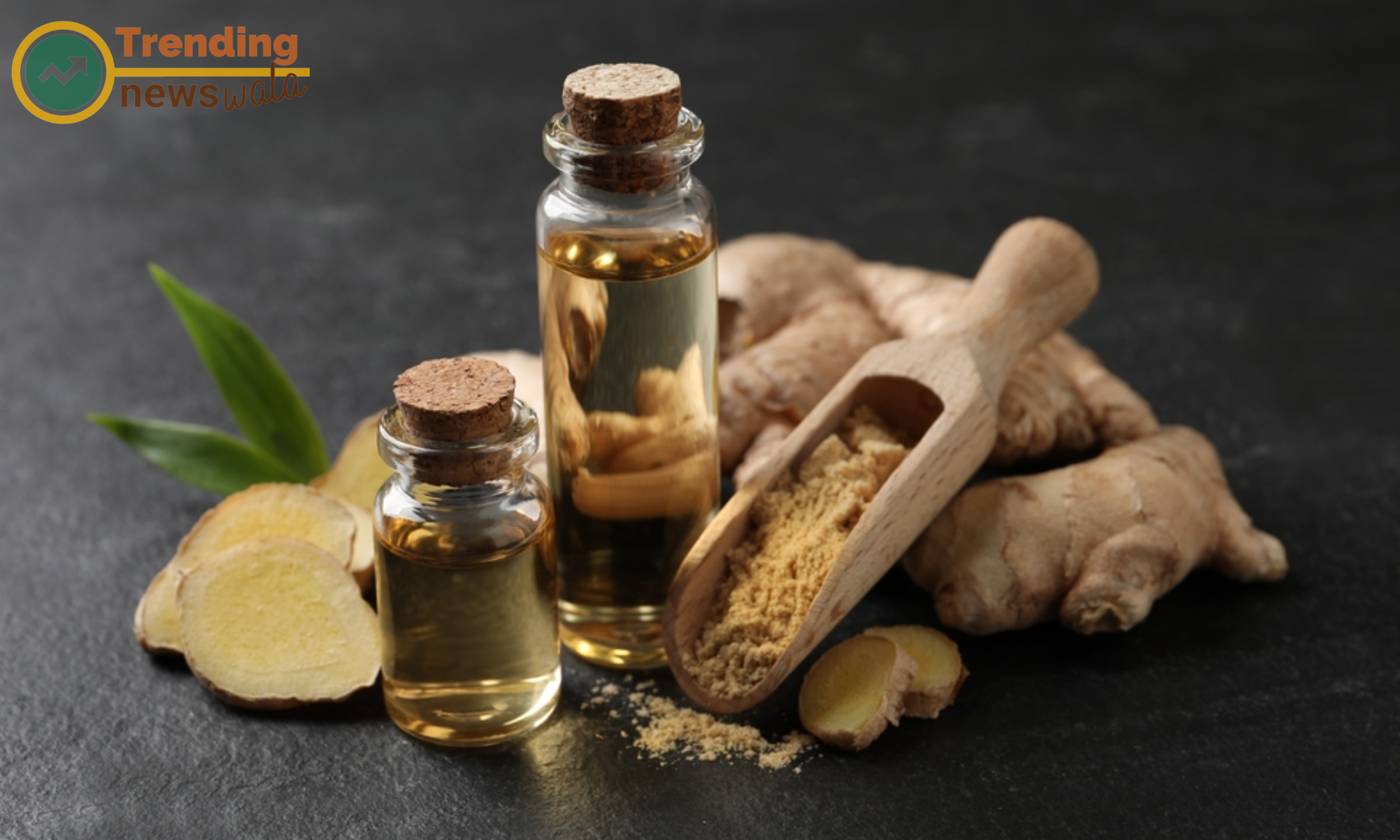
Pain management involves a combination of medical, physical, and psychological approaches to alleviate or reduce pain. It is a multidisciplinary field that addresses various types of pain, ranging from acute to chronic. Here are more details on pain management:
Assessment and Diagnosis:
- The first step in pain management is a thorough assessment to understand the type, intensity, and duration of pain.
- Healthcare professionals may use various tools, including pain scales and imaging studies, to diagnose the underlying cause of pain.
Medication Management:
- Medications are commonly used to manage pain. The choice of medication depends on the type and severity of pain.
- Categories of pain medications include analgesics (pain relievers), anti-inflammatory drugs, opioids, muscle relaxants, and neuropathic pain medications.
- It's crucial to use medications under the guidance of a healthcare professional to manage potential side effects and risks.
Physical Therapy:
- Physical therapy involves exercises and techniques to improve strength, flexibility, and function, with the goal of reducing pain.
- Modalities such as heat, cold, ultrasound, and electrical stimulation may be used to manage pain and promote healing.
Interventional Procedures:
- Certain medical procedures can be used to manage pain directly at its source. Examples include nerve blocks, epidural injections, and joint injections.
- These procedures are often performed by pain specialists or interventional pain management physicians.
Acupuncture and Acupressure:
- Traditional Chinese medicine practices, such as acupuncture and acupressure, involve the stimulation of specific points on the body to relieve pain.
- Some individuals find these approaches effective in managing various types of pain.
Cognitive-Behavioral Therapy (CBT):
- CBT is a psychological approach that helps individuals manage and cope with chronic pain by addressing thought patterns and behaviors associated with pain.
- It can be effective in improving pain-related outcomes and enhancing overall well-being.
Relaxation Techniques:
- Relaxation techniques, such as deep breathing, meditation, and progressive muscle relaxation, can help reduce muscle tension and alleviate stress-related pain.
Lifestyle Modifications:
- Adopting a healthy lifestyle, including regular exercise, a balanced diet, and proper sleep, can contribute to pain management.
- Maintaining a healthy weight and avoiding smoking can also have positive effects on pain.
Support Groups:
- Joining support groups or participating in counseling can provide emotional support and connect individuals facing similar pain challenges.
- Peer support can be valuable in coping with the psychological aspects of pain.
Alternative and Complementary Therapies:
- Some individuals explore alternative therapies like herbal remedies, massage, chiropractic care, and dietary supplements for pain management.
- While some of these approaches may offer relief, it's essential to consult with healthcare professionals to ensure their safety and efficacy.
Effective pain management often involves a personalized and comprehensive approach that considers the unique needs of each individual. It's crucial for individuals experiencing pain to work closely with healthcare professionals to develop a tailored pain management plan that addresses both the physical and psychological aspects of pain. Additionally, open communication and a collaborative approach between patients and healthcare providers are essential for successful pain management.
The anti-inflammatory properties of ginger extend to pain relief. It may help reduce muscle pain, menstrual pain, and general soreness. Some studies even suggest that ginger may be as effective as certain medications in managing pain.
Cardiovascular Health
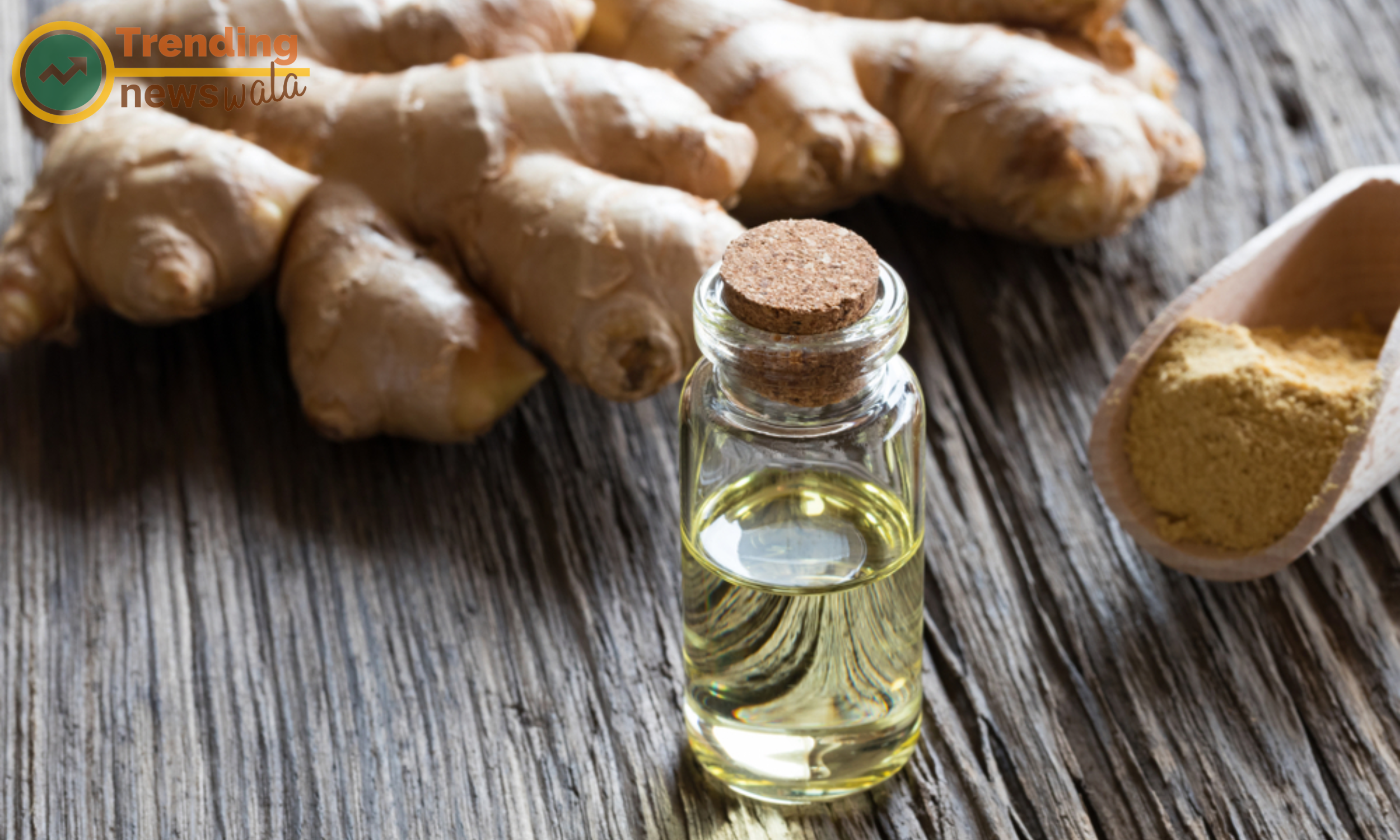
Cardiovascular health refers to the overall well-being of the cardiovascular system, which includes the heart and blood vessels. Maintaining cardiovascular health is crucial for the proper functioning of the circulatory system and reducing the risk of heart disease. Here are more details on cardiovascular health:
Heart Function:
- The heart is a muscular organ that pumps blood throughout the body, supplying oxygen and nutrients to tissues and organs.
- Regular exercise and a healthy lifestyle support the heart's efficiency and overall function.
Blood Vessels:
- Blood vessels, including arteries, veins, and capillaries, form the circulatory system.
- Arteries carry oxygen-rich blood away from the heart, veins return oxygen-depleted blood to the heart, and capillaries facilitate the exchange of nutrients and waste between blood and tissues.
Blood Pressure:
- Maintaining healthy blood pressure is essential for cardiovascular health.
- High blood pressure (hypertension) can strain the heart and lead to damage in the arteries, increasing the risk of heart disease and stroke.
Cholesterol Levels:
- Cholesterol is a fatty substance that is essential for various bodily functions.
- Imbalances in cholesterol levels, particularly high levels of LDL ("bad") cholesterol, can contribute to the buildup of plaque in arteries, leading to atherosclerosis and increasing the risk of heart disease.
Healthy Diet:
- A heart-healthy diet includes a variety of fruits, vegetables, whole grains, lean proteins, and healthy fats.
- Limiting the intake of saturated and trans fats, sodium, and added sugars can contribute to better cardiovascular health.
Physical Activity:
- Regular exercise is beneficial for cardiovascular health.
- Aerobic activities, such as walking, running, swimming, and cycling, can help improve heart function, lower blood pressure, and promote overall cardiovascular fitness.
Weight Management:
- Maintaining a healthy weight is important for cardiovascular health.
- Excess body weight, especially around the abdominal area, is associated with an increased risk of heart disease.
Tobacco Avoidance:
- Smoking and exposure to tobacco smoke are major risk factors for cardiovascular disease.
- Quitting smoking can lead to significant improvements in cardiovascular health.
Moderate Alcohol Consumption:
- Moderate alcohol consumption may have certain cardiovascular benefits.
- However, excessive alcohol intake can contribute to heart disease and other health problems.
Stress Management:
- Chronic stress can negatively impact cardiovascular health.
- Techniques such as relaxation, mindfulness, and stress-reducing activities can contribute to overall well-being.
Regular Health Check-ups:
- Regular health check-ups, including blood pressure measurements and cholesterol screenings, help monitor cardiovascular health and identify risk factors early.
Medication Management:
- In some cases, medications may be prescribed to manage specific cardiovascular risk factors, such as hypertension or high cholesterol.
Maintaining cardiovascular health is a lifelong commitment that involves adopting a heart-healthy lifestyle and making informed choices. It's important for individuals to work with healthcare professionals to assess their cardiovascular risk, receive personalized recommendations, and establish a plan for prevention and management. Regular monitoring, healthy habits, and prompt intervention when needed are key components of cardiovascular health.
Regular consumption of ginger may contribute to heart health. It has been linked to lower levels of cholesterol and blood pressure, reducing the risk of heart-related issues. The anti-inflammatory and antioxidant effects also play a role in maintaining cardiovascular well-being.
Diabetes Management
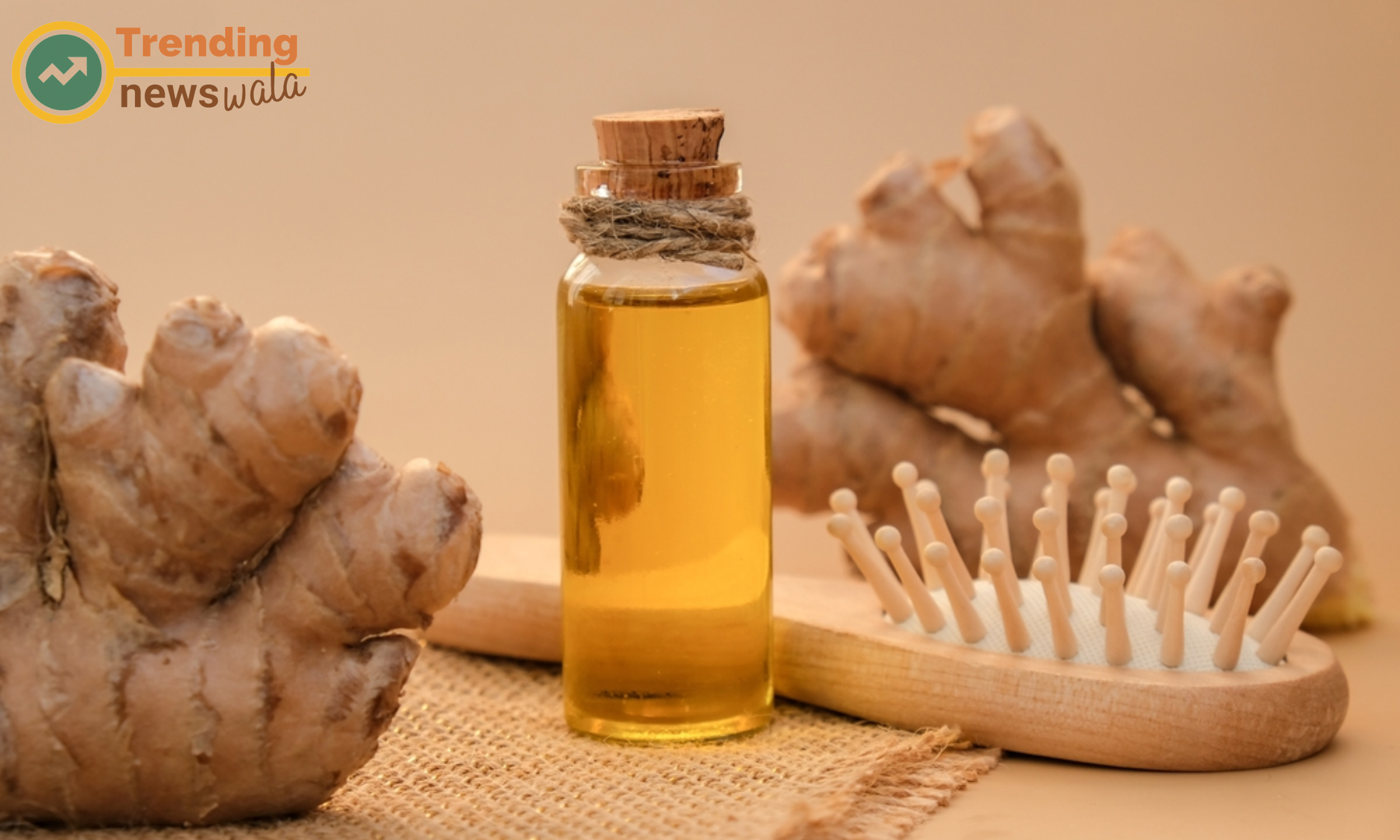
Diabetes management involves a combination of lifestyle modifications, medications, and regular monitoring to control blood sugar levels and prevent complications associated with diabetes. Here are more details on diabetes management:
Blood Sugar Monitoring:
- Regular monitoring of blood sugar levels is a fundamental aspect of diabetes management.
- Individuals with diabetes may use blood glucose meters to check their blood sugar levels multiple times a day.
Healthy Eating:
- Adopting a balanced and nutritious diet is crucial for managing diabetes.
- Carbohydrate counting, portion control, and choosing foods with a low glycemic index can help regulate blood sugar levels.
- Emphasizing whole grains, fruits, vegetables, lean proteins, and healthy fats is important.
Physical Activity:
- Regular exercise has numerous benefits for individuals with diabetes.
- Exercise helps improve insulin sensitivity, lowers blood sugar levels, and contributes to overall cardiovascular health.
- Aim for a combination of aerobic exercises (such as walking or cycling) and strength training.
Medication Management:
- Depending on the type of diabetes, medications may be prescribed to help control blood sugar levels.
- For type 1 diabetes, insulin is typically required.
- For type 2 diabetes, various oral medications, injectable medications, or insulin may be prescribed.
Insulin Therapy:
- People with type 1 diabetes or advanced type 2 diabetes may require insulin therapy to regulate blood sugar levels.
- Insulin can be administered through injections or insulin pumps.
Weight Management:
- Achieving and maintaining a healthy weight is important for managing insulin resistance and improving blood sugar control.
- Losing excess weight, if necessary, can have significant benefits for individuals with type 2 diabetes.
Regular Medical Check-ups:
- Regular visits to healthcare providers are essential for monitoring overall health and managing diabetes.
- These check-ups may include blood tests, eye exams, foot exams, and screenings for complications associated with diabetes.
Foot Care:
- People with diabetes are at an increased risk of foot problems.
- Proper foot care, including daily inspection, keeping feet clean and moisturized, and wearing comfortable, well-fitting shoes, is crucial to prevent complications.
Blood Pressure and Cholesterol Management:
- Managing blood pressure and cholesterol levels is important for reducing the risk of cardiovascular complications associated with diabetes.
- Medications may be prescribed to control blood pressure and cholesterol if needed.
Stress Management:
- Chronic stress can impact blood sugar levels.
- Techniques such as mindfulness, meditation, deep breathing, and relaxation exercises can help manage stress.
Education and Support:
- Diabetes education is key to empowering individuals to manage their condition effectively.
- Support from healthcare professionals, diabetes educators, and support groups can provide valuable information and encouragement.
Smoking Cessation:
- Smoking increases the risk of complications for individuals with diabetes.
- Quitting smoking is an essential component of diabetes management.
Individuals with diabetes should work closely with their healthcare team to develop a personalized diabetes management plan. It's important to regularly review and adjust the plan based on changes in health, lifestyle, or treatment needs. Consistent self-care, adherence to medication regimens, and proactive management are critical for optimizing diabetes control and preventing complications.
Some studies suggest that ginger may have potential Ginger And Its Benefits for people with diabetes. It can help lower blood sugar levels by increasing insulin sensitivity. However, individuals with diabetes should consult their healthcare provider before incorporating ginger into their routine.
Weight Management
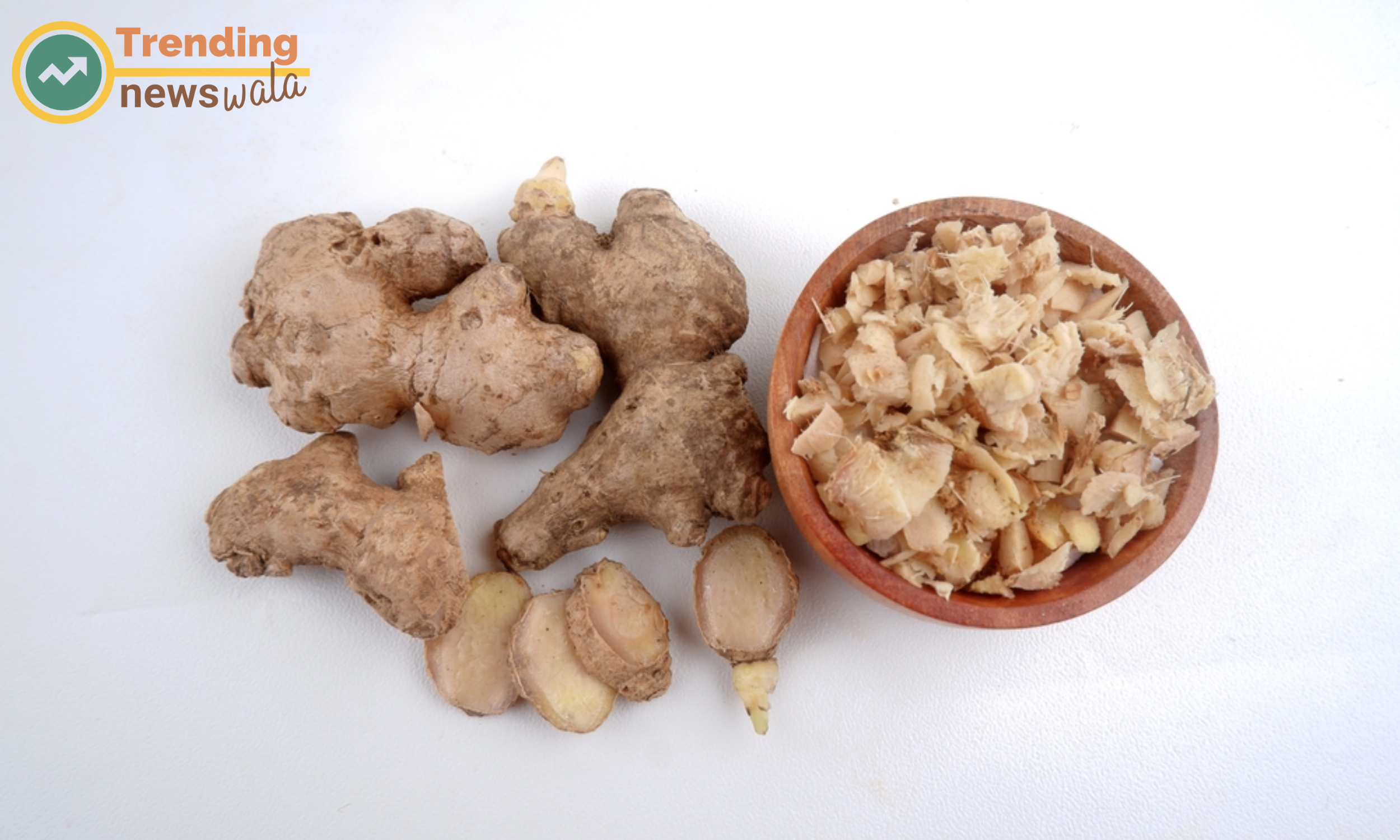
Weight management involves adopting a combination of healthy eating, regular physical activity, and lifestyle changes to achieve and maintain a healthy weight. It's not just about losing weight; it's about fostering a sustainable and balanced approach to support overall well-being. Here are more details on weight management:
Setting Realistic Goals:
- Establishing achievable and realistic weight loss or weight maintenance goals is crucial. Small, gradual changes are more sustainable than drastic ones.
Healthy Eating:
- Focus on a balanced and nutritious diet that includes a variety of fruits, vegetables, whole grains, lean proteins, and healthy fats.
- Pay attention to portion sizes and avoid excessive consumption of high-calorie, low-nutrient foods.
Caloric Intake and Energy Balance:
- Weight management is closely tied to the balance between caloric intake and energy expenditure.
- Consuming fewer calories than the body expends can lead to weight loss, while consuming more can result in weight gain.
Regular Physical Activity:
- Incorporate regular exercise into your routine to burn calories, improve cardiovascular health, and support overall well-being.
- Aim for a combination of aerobic exercises (e.g., walking, jogging, cycling) and strength training.
Behavioral Changes:
- Adopting healthy behaviors, such as mindful eating, recognizing hunger and fullness cues, and addressing emotional eating, can contribute to weight management.
Meal Planning and Preparation:
- Planning meals in advance and preparing healthy, portion-controlled options can help avoid impulsive, unhealthy food choices.
- Having nutritious snacks readily available can also prevent overeating.
Hydration:
- Drinking an adequate amount of water is important for overall health and can aid in weight management by promoting feelings of fullness and preventing dehydration.
Sleep Quality:
- Poor sleep patterns have been linked to weight gain and obesity.
- Aim for adequate and quality sleep to support overall health and weight management.
Regular Monitoring:
- Regularly monitor your weight, but keep in mind that the scale is just one measure of progress.
- Pay attention to how your clothes fit, changes in energy levels, and improvements in overall health.
Stress Management:
- Chronic stress can contribute to overeating and weight gain.
- Practices such as meditation, deep breathing, and stress-reducing activities can help manage stress.
Professional Support:
- Seeking guidance from healthcare professionals, dietitians, or fitness trainers can provide personalized advice and support for effective weight management.
Long-Term Approach:
- Adopting a long-term, sustainable approach to weight management is essential.
- Quick-fix diets or extreme measures often result in short-term success and are challenging to maintain.
Mindful Eating:
- Practicing mindful eating involves being present and attentive to your eating experience, paying attention to hunger and fullness cues, and savoring your food.
Remember that weight management is a journey, and there is no one-size-fits-all approach. It's important to make changes that are realistic, sustainable, and tailored to your individual needs and preferences. Consulting with healthcare professionals, such as registered dietitians or fitness experts, can provide personalized guidance on your weight management journey.
Ginger can aid in weight management by promoting a feeling of fullness and reducing overall food intake. It may also enhance the thermic effect of food, potentially contributing to calorie burning.
Respiratory Health
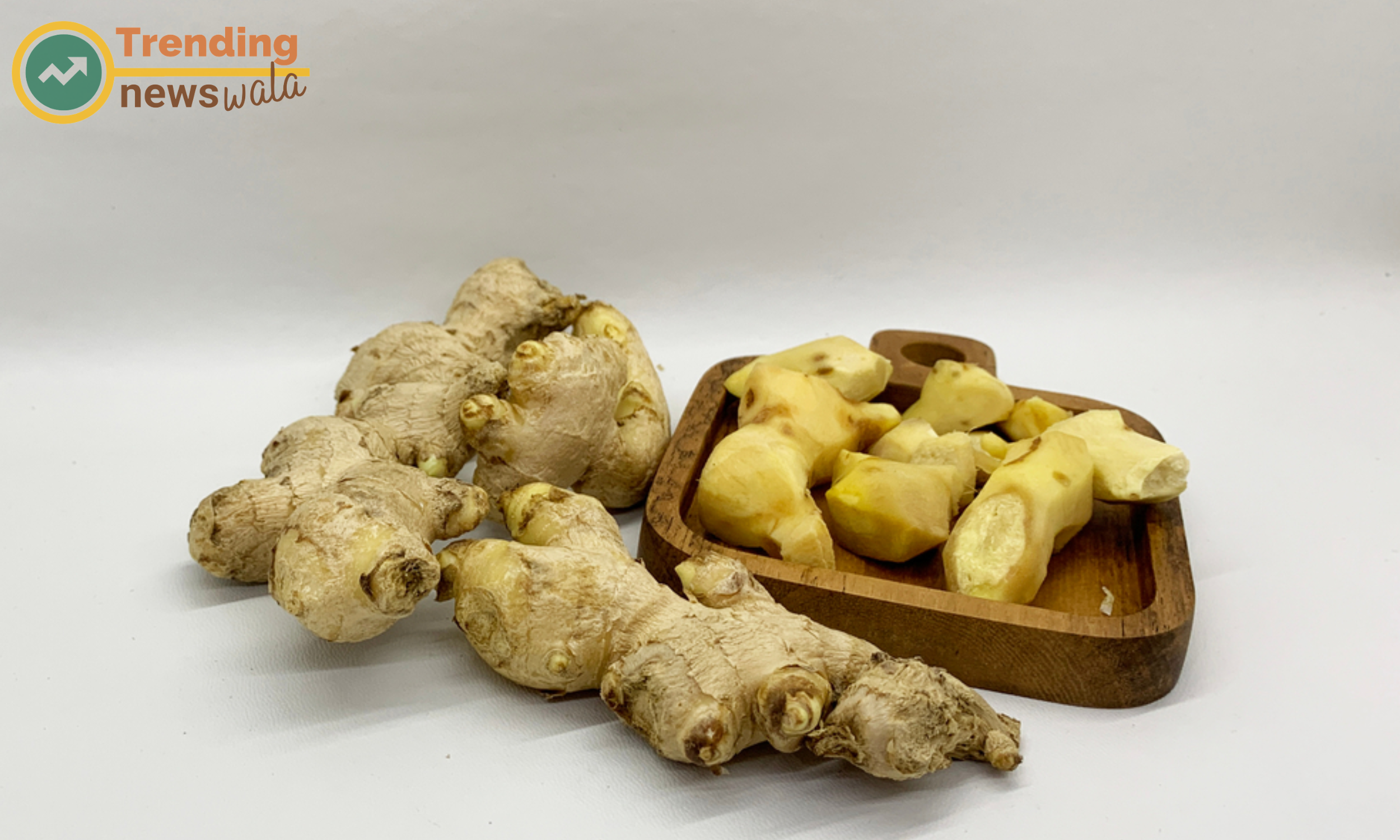
Respiratory health refers to the overall well-being of the respiratory system, which includes the lungs, airways, and other structures involved in breathing. Maintaining good respiratory health is essential for proper oxygen exchange and overall physiological function. Here are more details on respiratory health:
Lungs and Airway Function:
- The lungs are the primary organs of the respiratory system, responsible for the exchange of oxygen and carbon dioxide.
- Air passes through the airways, including the trachea, bronchi, and bronchioles, before reaching the tiny air sacs called alveoli, where gas exchange occurs.
Breathing Techniques:
- Proper breathing techniques, such as diaphragmatic breathing and pursed-lip breathing, can promote efficient lung function and improve respiratory health.
- Breathing exercises may be beneficial for individuals with respiratory conditions like asthma or chronic obstructive pulmonary disease (COPD).
Adequate Ventilation:
- Ensuring proper ventilation of indoor spaces is important for maintaining respiratory health.
- Adequate airflow helps reduce the concentration of indoor pollutants and minimizes the risk of respiratory irritants.
Avoiding Tobacco Smoke:
- Smoking is a major risk factor for respiratory diseases, including lung cancer, chronic bronchitis, and emphysema.
- Avoiding exposure to tobacco smoke and quitting smoking are crucial for respiratory health.
Regular Exercise:
- Physical activity contributes to overall health and supports respiratory function.
- Aerobic exercises, such as brisk walking, cycling, and swimming, can improve lung capacity and efficiency.
Maintaining a Healthy Weight:
- Obesity can affect respiratory health by reducing lung function and increasing the risk of conditions like sleep apnea.
- Maintaining a healthy weight through diet and exercise supports overall respiratory well-being.
Vaccinations:
- Vaccinations, such as the influenza vaccine and pneumococcal vaccine, are essential for preventing respiratory infections.
- Vaccination is particularly important for individuals with chronic respiratory conditions.
Avoiding Environmental Pollutants:
- Exposure to environmental pollutants, such as air pollution, dust, and chemical fumes, can negatively impact respiratory health.
- Taking measures to minimize exposure, such as using air purifiers and avoiding polluted areas, is beneficial.
Managing Respiratory Conditions:
- Individuals with respiratory conditions like asthma or COPD should work closely with healthcare professionals to manage their conditions effectively.
- Following prescribed treatment plans, using medications as directed, and attending regular check-ups are important components of respiratory health management.
Breathing Clean Air:
- Ensuring access to clean air is crucial for respiratory health.
- Individuals with respiratory conditions may benefit from using air filters or purifiers to reduce indoor air pollutants.
Hydration: Staying well-hydrated helps maintain the mucous membranes in the respiratory system and supports overall respiratory function.
Screening and Early Detection: Regular health check-ups and screenings can help detect respiratory conditions early, allowing for timely intervention and management.
Pulmonary Rehabilitation: Pulmonary rehabilitation programs may be recommended for individuals with chronic respiratory conditions to improve exercise tolerance and overall respiratory function.
Maintaining respiratory health is vital for overall well-being, and adopting a healthy lifestyle can significantly contribute to the prevention of respiratory diseases. Individuals with pre-existing respiratory conditions should work closely with healthcare professionals to manage their conditions effectively and improve their quality of life.
Ginger's anti-inflammatory and antimicrobial properties make it a popular choice for respiratory health. It can help soothe sore throats, reduce congestion, and provide relief from common respiratory conditions like cough and cold.
Anti-Cancer Potential

The term "anti-cancer potential" refers to the ability of certain substances, such as foods, compounds, or treatments, to exhibit properties that may prevent or inhibit the development and progression of cancer. It's important to note that while promising findings exist, further research is often needed to fully understand the mechanisms and effectiveness of these substances. Here are more details on anti-cancer potential:
Antioxidant Properties: Many substances with potential anti-cancer effects possess antioxidant properties. Antioxidants help neutralize free radicals, unstable molecules that can damage cells and contribute to the development of cancer.
Anti-Inflammatory Effects: Chronic inflammation is associated with an increased risk of cancer. Substances with anti-inflammatory effects may help reduce inflammation and, in turn, lower the risk of cancer development.
Apoptosis Induction: Apoptosis is a natural process of programmed cell death that helps maintain balance in the body. Some compounds may induce apoptosis in cancer cells, preventing their uncontrolled growth and proliferation.
Inhibition of Angiogenesis: Angiogenesis is the formation of new blood vessels, a process that is critical for the growth and spread of tumors. Inhibiting angiogenesis may help prevent the blood supply to cancer cells, limiting their ability to grow and metastasize.
DNA Repair and Stability: Compounds that support DNA repair mechanisms and maintain DNA stability may reduce the risk of mutations and genomic instability, which are associated with cancer development.
Immune System Modulation: Enhancing the body's immune response can aid in recognizing and eliminating cancer cells. Some substances may modulate the immune system to better target and destroy cancer cells.
Anti-Metastatic Properties: Metastasis is the spread of cancer cells to other parts of the body. Compounds that inhibit metastasis may help contain the cancer and prevent its spread.
Hormonal Regulation: For hormone-related cancers, substances that modulate hormonal pathways may be explored for their potential anti-cancer effects.
Natural Compounds with Anti-Cancer Properties: Various natural compounds found in fruits, vegetables, herbs, and spices have demonstrated potential anti-cancer effects. Examples include curcumin from turmeric, resveratrol from grapes, and sulforaphane from broccoli.
Targeted Therapies:
- Advancements in cancer research have led to the development of targeted therapies that specifically target molecules or pathways involved in cancer growth.
- These therapies aim to minimize damage to healthy cells and tissues.
Chemoprevention:
- Chemoprevention involves the use of natural or synthetic substances to prevent, slow, or reverse the development of cancer.
- Some compounds, such as certain vitamins and minerals, have been studied for their potential chemopreventive effects.
Clinical Trials:
- Many substances with potential anti-cancer properties are studied in clinical trials to evaluate their safety and efficacy in humans.
- Clinical trials provide essential data to determine whether a substance can be used as a cancer preventive or therapeutic agent.
It's crucial to approach discussions about anti-cancer potential with caution and to recognize that scientific research is an ongoing process. While certain substances show promise in laboratory and preclinical studies, their effectiveness and safety in humans need to be rigorously tested through clinical trials. Individuals interested in incorporating specific foods or supplements for potential anti-cancer benefits should consult with healthcare professionals for personalized advice based on their health status and medical history.
While research is ongoing, some studies suggest that ginger may have potential anti-cancer properties. Its antioxidant and anti-inflammatory effects could play a role in preventing or slowing the growth of certain types of cancer cells.
Incorporating Ginger Into Your Diet:
- Ginger Tea: A simple and soothing way to enjoy ginger's benefits.
- Cooking: Add fresh or ground ginger to stir-fries, soups, and marinades.
- Smoothies: Blend fresh ginger into your favorite fruit or vegetable smoothies.
- Snacking: Enjoy crystallized ginger as a healthy and flavorful snack.
Precautions: While ginger is generally considered safe for most people, it's advisable to consult with a healthcare professional, especially if you are pregnant, nursing, or taking medications. Excessive ginger consumption may cause digestive issues in some individuals.
From its roots in traditional medicine to modern scientific validation, ginger has earned its status as a versatile and beneficial spice. Whether you prefer it in your meals, as a warm cup of tea, or incorporated into your favorite recipes, embracing ginger can be a flavorful way to enhance both your culinary experiences and your overall well-being.

What is ginger?
Ginger (Zingiber officinale) is a flowering plant whose rhizome, commonly known as ginger root, is widely used as a spice and for its medicinal properties.
What are the key bioactive compounds in ginger?
The primary bioactive compounds in ginger include gingerol, shogaols, and paradols. Gingerol, in particular, is known for its anti-inflammatory and antioxidant effects.
How does ginger benefit digestion
Ginger has been traditionally used to aid digestion. It may help accelerate gastric emptying, alleviate indigestion, and reduce feelings of nausea and vomiting.
Can ginger help with nausea, particularly during pregnancy?
Yes, ginger has been studied for its effectiveness in relieving nausea and vomiting, including morning sickness during pregnancy. However, pregnant individuals should consult with healthcare professionals before using ginger supplements.
Is ginger effective for motion sickness?
Yes, ginger has been shown to be effective in reducing symptoms of motion sickness, such as dizziness and nausea. It can be consumed in various forms, including ginger tea or capsules.
How does ginger exhibit anti-inflammatory properties?
Ginger contains bioactive compounds like gingerol that have anti-inflammatory effects. It may inhibit pro-inflammatory pathways and reduce oxidative stress, contributing to its anti-inflammatory properties.
Can ginger be beneficial for pain relief?
Yes, ginger's anti-inflammatory properties may contribute to pain relief. It has been studied for its potential in managing conditions like osteoarthritis and muscle soreness.
Is ginger safe for everyone?
Ginger is generally considered safe for most people when consumed in moderation. However, some individuals may experience side effects like heartburn or digestive discomfort. Pregnant individuals and those on certain medications should consult with healthcare professionals before using ginger supplements.
How can ginger be incorporated into the diet?
Ginger can be added to recipes, used in teas, or consumed as supplements. It is a versatile spice that can enhance the flavor of both savory and sweet dishes.
Can ginger be used for weight management?
Some studies suggest that ginger may help with weight management by increasing thermogenesis (calorie burning) and reducing feelings of hunger. However, more research is needed in this area.
Is there evidence supporting ginger's potential anti-cancer properties?
While some studies have explored the anti-cancer properties of ginger, more research is needed to establish its effectiveness. It is not a substitute for conventional cancer treatments, and individuals should rely on evidence-based approaches.





